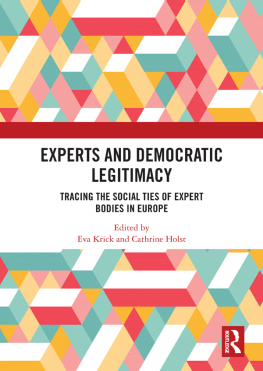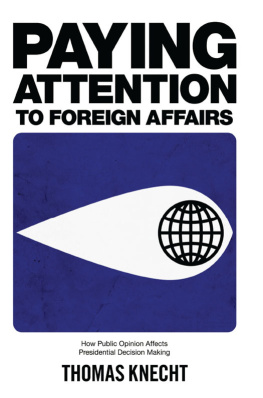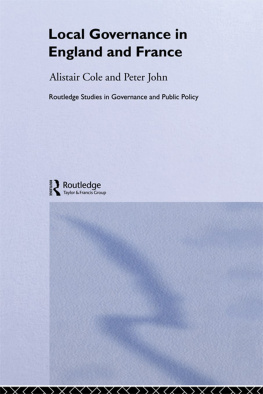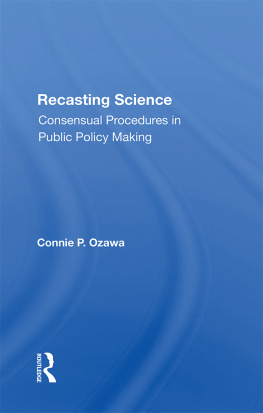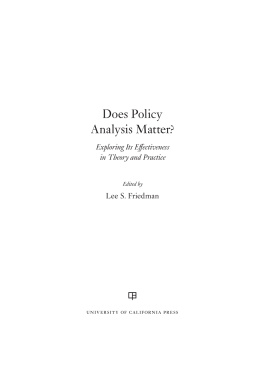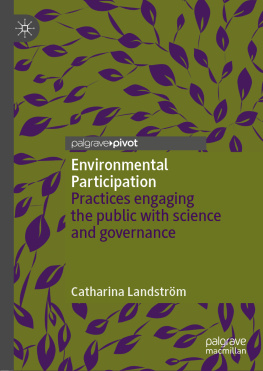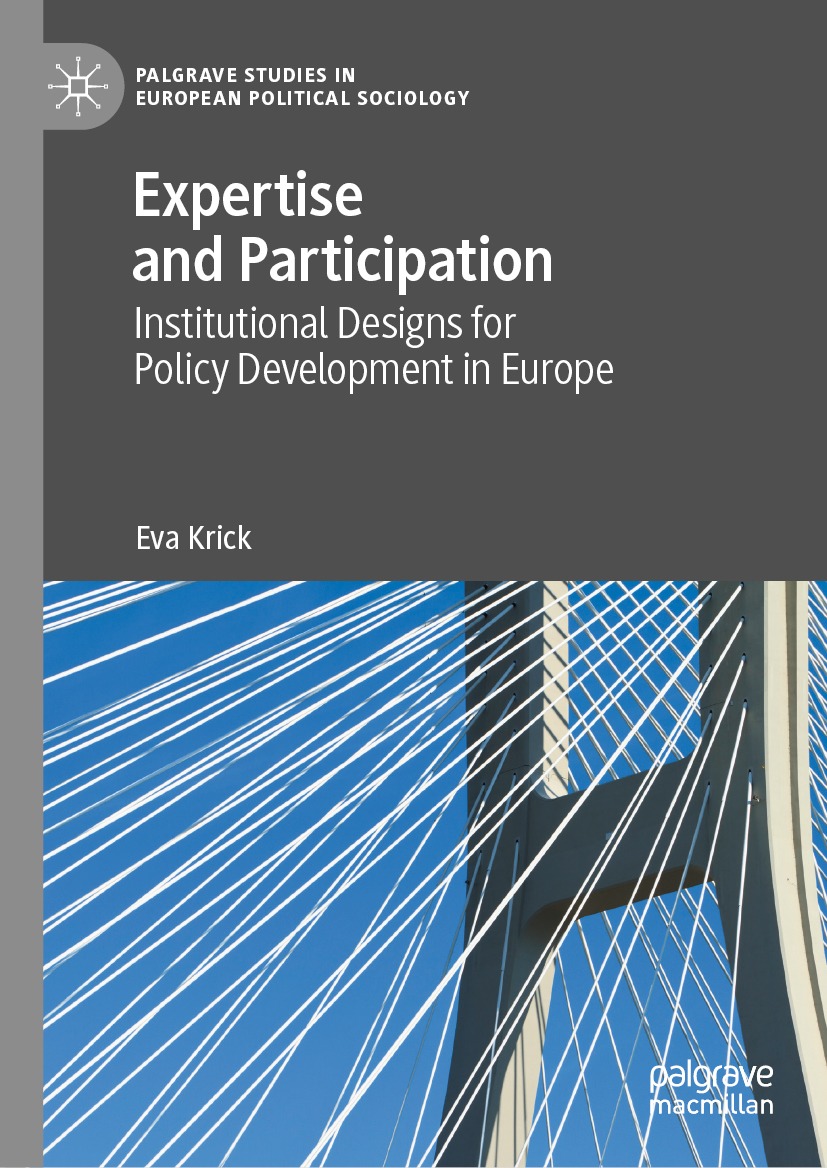Palgrave Studies in European Political Sociology
Series Editors
Carlo Ruzza
School of International Studies, University of Trento, Trento, Italy
Hans-Jrg Trenz
Faculty of Political and Social Sciences, Scuola Normale Superiore, Firenze, Italy
Palgrave Studies in European Political Sociology addresses contemporary themes in the field of Political Sociology. Over recent years, attention has turned increasingly to processes of Europeanization and globalization and the social and political spaces that are opened by them. These processes comprise both institutional-constitutional change and new dynamics of social transnationalism. Europeanization and globalization are also about changing power relations as they affect people's lives, social networks and forms of mobility.
The Palgrave Studies in European Political Sociology series addresses linkages between regulation, institution building and the full range of societal repercussions at local, regional, national, European and global level, and will sharpen understanding of changing patterns of attitudes and behaviours of individuals and groups, the political use of new rights and opportunities by citizens, new conflict lines and coalitions, societal interactions and networking, and shifting loyalties and solidarity within and across the European space.
We welcome proposals from across the spectrum of Political Sociology and Political Science, on dimensions of citizenship; political attitudes and values; political communication and public spheres; states, communities, governance structure and political institutions; forms of political participation; populism and the radical right; and democracy and democratization.
More information about this series at http://www.palgrave.com/gp/series/14630
Eva Krick
Expertise and Participation
Institutional Designs for Policy Development in Europe
1st ed. 2021
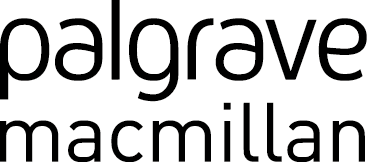
Logo of the publisher
Eva Krick
ARENA Centre for European Studies, University of Oslo Blindern, Oslo, Norway
Palgrave Studies in European Political Sociology
ISBN 978-3-030-75328-3 e-ISBN 978-3-030-75329-0
https://doi.org/10.1007/978-3-030-75329-0
Springer Nature Switzerland AG 2021
This work is subject to copyright. All rights are solely and exclusively licensed by the Publisher, whether the whole or part of the material is concerned, specifically the rights of translation, reprinting, reuse of illustrations, recitation, broadcasting, reproduction on microfilms or in any other physical way, and transmission or information storage and retrieval, electronic adaptation, computer software, or by similar or dissimilar methodology now known or hereafter developed.
The use of general descriptive names, registered names, trademarks, service marks, etc. in this publication does not imply, even in the absence of a specific statement, that such names are exempt from the relevant protective laws and regulations and therefore free for general use.
The publisher, the authors and the editors are safe to assume that the advice and information in this book are believed to be true and accurate at the date of publication. Neither the publisher nor the authors or the editors give a warranty, expressed or implied, with respect to the material contained herein or for any errors or omissions that may have been made. The publisher remains neutral with regard to jurisdictional claims in published maps and institutional affiliations.
Cover illustration: Getty images: Adam Smigielski
This Palgrave Macmillan imprint is published by the registered company Springer Nature Switzerland AG
The registered company address is: Gewerbestrasse 11, 6330 Cham, Switzerland
Acknowledgments
This book has taken shape at the University of Oslos ARENA Centre for European Studies, where I enjoyed outstanding working conditions and was part of a lively and inspiring academic debate. I am very grateful for that and want to thank everyone at ARENA!
Some people stand out: I collaborated particularly closely with Cathrine Holst within the research project EUREX. Thanks to Cathrines broad academic ken, her energy, integrity and generosity, this collaboration has been the most inspiring and motivating experience of my academic life. se Gornitzka brought me to ARENA in the first place and together we have co-authored several studies on questions of expertise and knowledge in European policy-making. Stine Hesstvedt has become a cherished discussion partner on a wide range of political and academic questions and I am indebted for the smart and honest comments she provided to several of my drafts. I would also like to thank Johan Christensen for an exceedingly rewarding co-authorship, his general kindness, support and optimism and many interesting debates. I am also very grateful to Johan P. Olsen for thought-provoking feedback on my work. He has a better memory, overview and analytical mind than any of us and discussions with him have been a real privilege.
Two research stays during the last years have been essential sources of input and energy. I would like to thank in particular Marc Geddes, Kat Smith, Eugenia Rodrigues and Steve Yearly at the University of Edinburghs SKAPE Centre of science, knowledge and policy and Peter Munk Christiansen and Fabio Wolkenstein at the University of Aarhuss Centre of public leadership for providing feedback on my work and for hosting and integrating me. It is very much appreciated.
For different kinds of support during the last years I am grateful to a large range of people. This applies especially to shild Nss, Ida Hjelmesth, John Erik Fossum, Asimina Michailidou, Morten Egeberg, Christopher Lord, Johanne Dhlie Saltnes, Julia von Blumenthal, Holger Straheim, Matthew Wood, Vera Krick and, of course, Lars Leeten.
This work would not have been possible without the generous funding by the German Research Council (Deutsche Forschungsgemeinschaft) and the Norwegian Research Council (Forskningsrdet).
Praise for Expertise and Participation
Kricks book provides the reader with a rare combination of an intelligent probe into the fundamental problem of the theory of democracy how to reconcile democratic participation and reliable expertise and meticulous empirical case studies of three exemplary exercises in public participation. The result is an unusually sophisticated analysis which does not shy away from practical conclusions.
Prof. em. Peter Weingart, University of Bielefeld
Making public policy that combines expert advice and public input is no easy task. Eva Kricks accessible and judicious book is full of insights on why it is so difficult, and how complex democratic societies can do better. Drawing on original empirical research, Krick develops nuanced lessons for the design of participatory expert advisory processes. The book offers an original and important contribution to democratic theory, policy studies, science studies, and related fields.
Prof. Mark B. Brown, California State University, Sacramento
Kricks investigations illuminate the much-underestimated importance of hybrid policy advice bodies for democratic governance. Her grounded approach to institutional design is genuinely original, and truly advances our understanding of how experts, citizens and stakeholders (should) interact.


